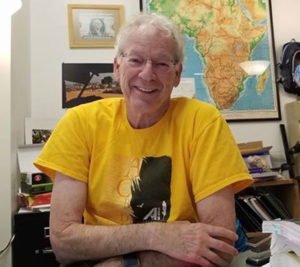Detials
Michael Glantz researches, writes and lectures about how climate, water and weather affect society and how society affects climate, water and weather, especially how those interactions affect quality of life issues. Glantz is currently working to bridge the activities of meteorological and hydrologic science communities with the social sciences and humanities around the globe to increase awareness among political leaders and the general public about the interactions of climate, water, weather, and society. Much of his recent work has focused on how to cope through enhancing the value of early warning systems for climate, water and weather hazards and disaster avoidance in developing countries especially in a changing global climate. His research also relates to African drought and desertification and to food insecurity problems and prospects in developing countries; worldwide societal impacts of climate anomalies related to El Niño and La Niña events, climate variability, extremes and change; developing methods of early warning and of forecasting possible societal responses to the regional impacts of climate variability and of a changing climate; and the use of climate-related information for economic development. Glantz has convened more than 30 international, multidisciplinary meetings and written and edited more than 30 books in his 40 years of climate-related impacts research. Most recently Glantz has secured a 5-year Cooperative Agreement with the United States Agency for International Development (USAID) to study El Niño-Ready Nations [ENRNs] in a Changing Climate. Each year for the past 12 years Glantz has been invited to lecture for a week at the United Nations University in Tokyo, Japan. He was a researcher at the National Center for Atmospheric Research (NCAR) from 1974 to 2009 and was NCAR’s only Senior Scientist from the Social Sciences in it 54-year history. In the early 1990s Glantz received the prestigious Global 500 award from the United Nations Environment Program. Glantz was the director of the Environmental and Societal Impacts Group at NCAR as well as the Center for Capacity Building. In August 2008 Glantz received $1 million dollar 2-year grant from the Rockefeller Foundation and set up the Consortium for Capacity Building at the University of Colorado. His group was designated a Climate Global Initiative by the Clinton Foundation.
